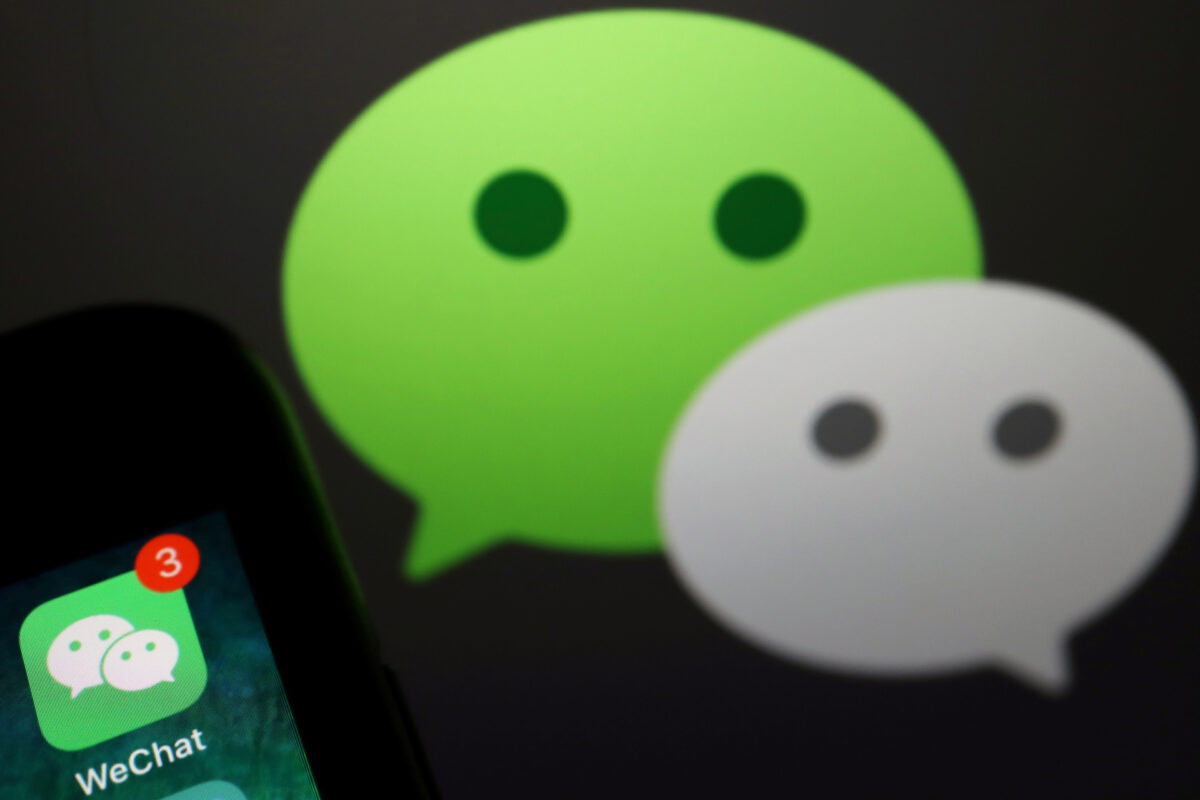
Google is testing a new artificial intelligence tool that can write helpful news articles, in the latest sign that the technology may transform or potentially replace some white-collar professions.
Google’s upcoming “Genesis” AI tool is being designed to act as a helpmate for journalists in the newsroom, anonymous sources told The New York Times in an exclusive July 19 report.
The Times article said that Google had demonstrated Genesis for media executives from the Times, The Washington Post, and The Wall Street Journal owner News Corp, presented the new AI technology that absorbs facts and writes out news feeds.
Two news executives at the NY Times mentioned in the article “said it seemed to take for granted the effort that went into producing accurate and artful news stories,” while another saw it as more of a personal assistant.
Others told the NY Times that they saw Google’s product as unsettling.
Google Demonstrates New AI Software
Jenn Crider, a Google spokeswoman, told the NY Times that “in partnership with news publishers, especially smaller publishers, we’re in the earliest stages of exploring ideas to potentially provide A.I.-enabled tools to help their journalists with their work.”
“These tools are not intended to replace the role journalists have in reporting, creating and fact-checking their articles,” she said.
Google told media executives that Genesis was in the early stages of development and that its primary function was assist to journalists with options for headlines, corrections, or finding different writing styles.
“Our goal is to give journalists the choice of using these emerging technologies in a way that enhances their work and productivity, just like we’re making assistive tools available for people in Gmail and in Google Docs,” Ms. Crider told The Guardian in a statement.
The tech company insisted that the technology was not intended to replace human reporters but to automate some basic tasks.
“Quite simply, these tools are not intended to, and cannot, replace the essential role journalists have in reporting, creating, and fact-checking their articles,” she added.
A News Corp spokesman told the NY Times in a statement, “We have an excellent relationship with Google, and we appreciate Sundar Pichai’s long-term commitment to journalism.”
A Google executive told the NY Times that the new software is an opportunity to help “steer the publishing industry away from the pitfalls of generative AI.”
News Industry Already Implementing New Bot Technology
News organizations around the world are still deciding whether to use AI tools in their newsrooms.
Some critics are skeptical that Genesis would be useful at greatly assisting journalists in correcting their mistakes or providing actual advice.
Bard has been caught presenting factual assertions that are, at times, incorrect and fail to send traffic to more authoritative sources, such as news publishers.
NewsGuard reported in May that AI bots were discovered powering dozens of AI-generated content farms.
Earlier this month, the Wall Street Journal reported that Google’s Bard software for hospitals had already “included more inaccurate or irrelevant content in its responses” than real doctors in live tests.
Despite the teething issues, the news comes after Google’s top AI rival, OpenAI, made a deal with the Associated Press to use ChatGPT in the newsroom and give it access to the wire service’s archives for the purpose of training its AI models,
This will give ChatGPT the ability to absorb vast amounts of material in order to help it produce plausible responses.
The NY Times, NPR, and Insider have already notified employees that they intend to explore the potential use of AI to see how it could be applied to news reporting, where timeliness counts and accuracy is paramount, reported The Times.
Some Journalists Fear AI Job Threat
AI tools are obviously causing anxiety among journalists who have been writing their own articles without help from the latest technology.
The Organisation for Economic Co-operation and Development (OECD) said that the global economy was on the “cusp of an AI revolution,” which could trigger job losses in skilled professions such as law, medicine and finance.
OECD said that 27 percent of jobs were at risk from AI-driven automation, across its 38 member countries, including the United Kingdom, Japan, Germany, Australia, Canada, and the United States.
Last month, KPMG estimated that 43 percent of the tasks performed by authors, writers, and translators could be carried out by AI tools.
Media’s Strained Relationship With Google
Google’s new tool comes on the back of several instances marking the strained relationship between the media industry and Google, despite the latter’s promise to provide more exposure for the business.
Publishers and other content creators have criticized Google and OpenAI for using decades of articles and posts to help train their AI systems without compensation.
News outlets including NBC News have taken protested against AI’s alleged use of their data without permission.
The News Media Alliance, which represents the newspaper industry, has also asked Congress for an antitrust exemption to let news organizations have more leverage over social media and search engine firms like Meta and Google.
Another blow is the federal lawsuit by major publisher Gannett regarding allegations that Google’s dominance of online advertising hurt local papers.


















































